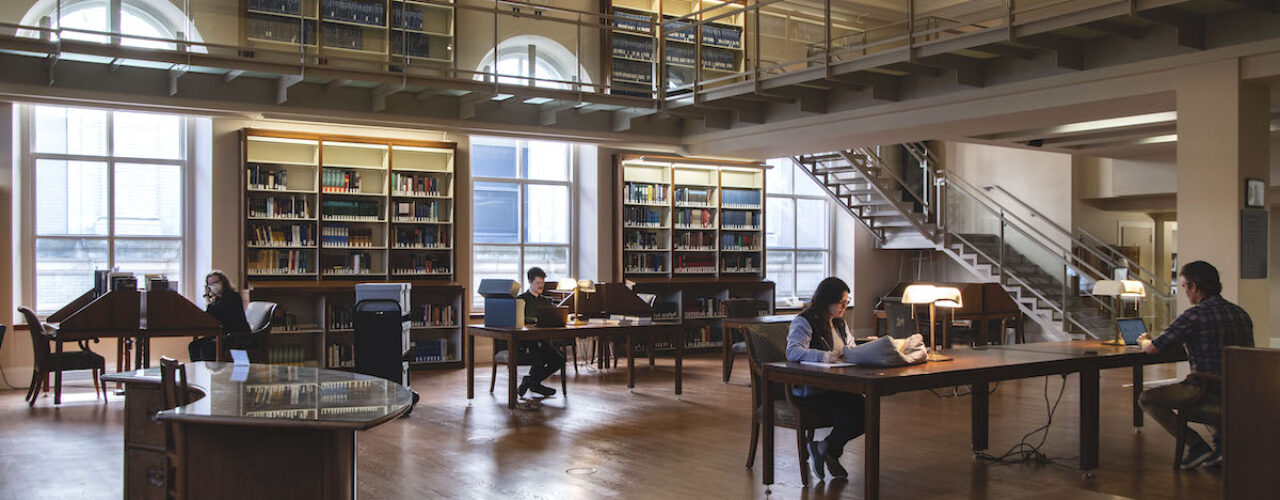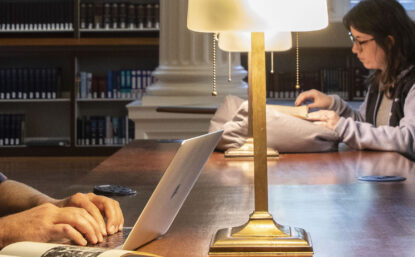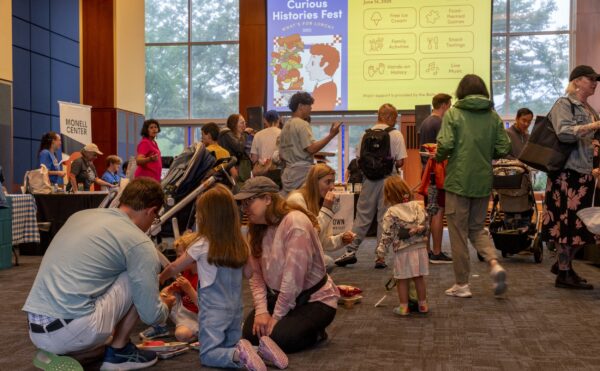
Science History Institute Welcomes 2022–2023 Beckman Center Fellows
Incoming class includes scholars in our new two-year curatorial fellowship program.
The Beckman Center for the History of Chemistry at the Science History Institute is pleased to announce our 2022–2023 class of fellows. Hailing from a diverse list of local, national, and international institutions, our incoming fellows will use our collections to study a wide range of topics in the history and social studies of chemistry, chemical engineering, and the life sciences.
In addition to our postdoctoral, dissertation, distinguished, and short-term research fellows, this year’s class also includes a cohort of two-year curatorial fellows, the first of its kind at the Institute. Scholars from this new fellowship program will assist with ongoing projects as staff members, expanding and exploring interpretive programs for our library and museum.
The Science History Institute is home to the largest private fellowship program in the historical study of science, medicine, and technology in the United States. Researchers travel from all over the world to use our collections and to take part in a vibrant scholarly community.
Curatorial Fellows
- Sherri Sheu (University of Colorado Boulder)
Focus: Museum Interpretation Projects
- Shuko Tamao (University at Buffalo)
Focus: Oral History Projects
Postdoctoral Research Fellows
- Armel Cornu (Uppsala University)
The Transmission of Sensory Knowledge in 18th-Century Chemistry
- Louis Gerdelan (Harvard University)
Catastrophic Knowledge: The Investigation of Disaster in the British, Spanish, and French Atlantic Worlds, ca. 1605–1780
- Bono Shih (Virginia Tech)
Engineering at the Crossroads of Chemistry and Industry: Developing Ideas of Chemical Engineering, 1880–1980
80/20 Postdoctoral Fellow (2nd Year)
- Meagan S. Allen
Roger Bacon’s Medical Alchemy: Occult Remedies and the Quest to Prolong Life
Dissertation Fellows
- Rebecca L. Jackson (Indiana University)
Measuring “Well”: Clinical Measuring Practices and Philosophy of Measurement
- Miriam F. Lipton (Oregon State University)
Bacteriophages and Antibiotics: The History of Cold War Politics of Antibiotic Resistance
- Rohini Patel (University of Toronto)
Chemical Modernities: Politics of Production, Waste, and Empire in Elmira, Ontario, 1940–2000
Distinguished Fellow
- Alice Lovejoy (University of Minnesota)
Cinema’s Militant Chemistry: Film and its Raw Materials
Short-Term Fellows
- Nicholas Allred (Rutgers University)
Character Under the Influence in 18th-Century Britain
- Kerri Arsenault (Independent Scholar)
Body of Evidence: A New Biography of Rachel Carson
- Marcus Carrier (Bielefeld University)
Chemistry without Substance: The History and Epistemic Status of Computational Chemistry
- Matthew Crawford (Kent State University)
Where Was the Enlightenment? Silver Mining, Technology, and Expertise in Late Colonial Peru, 1780–1820
- David Dunning (University of Oxford)
To Program Language: A History of What We Talk With in the Age of Computing
- Deborah Garwood (Drexel University)
Exploring Collaborative Documentary Practices for the Science History Institute’s Oral History Collection
- Susannah Glickman (Columbia University)
Quantum, “Tech,” and the New Central Planning
- Daniel Graham (Slippery Rock University)
Structures of Change in a Chemical Age
- Sarah Hijmans (Université de Paris)
Between the Scientific and the Domestic: Anna Sundström’s Work in Berzelius’s House, 1819–1835
- Sofiya Kamalova (University of Valencia)
The Making of Toxic Ignorance in Occupational Health: The Ardystil Syndrome, a Collective Intoxication at the Workplace in Late 20th-Century Spain
- Margaret Maurer (University of North Carolina at Chapel Hill)
Everyday Alchemy
- Odinn Melsted (Maastricht University)
Chemical Perspectives: The Oil Industry, Geochemical Exploration Techniques, and Alternative Fuels Research in the 1970s
- Edoardo Pierini (University of Geneva)
Chemical Medicines and Dangerous Drugs: Sources and Impact of Angelo Sala’s Opiologia
- Rosalind Powell (University of Bristol)
Bodies of Knowledge: Discourses of Self-Experimentation in the Long 18th Century
- Raquel Reyes (School of Oriental and African Studies, London, U.K.)
Chemical Magic Bullets: American Food Science in the Tropics, 1902–1945
- Shoshana Simons (University of California Berkeley)
The Digitization of Chemistry and Computing
- Gina Surita (Princeton University)
The Currency of the Cell: Energy Cycles and the Remaking of Metabolism, 1900–1970
Fellows in Residence
- George Borg (National Science Foundation) | SBE Postdoctoral Research Fellow
The Instrumental Revolution in Geochemistry
- Gustave Lester (Harvard University) | Dissertation Fellow in Residence
Mineral Lands, Mineral Empire: Mapping the Raw Materials of U.S. Industrial Capitalism, 1780–1880
- Megan Piorko | Postdoctoral Fellow in Residence
Library as Laboratory: 17th-Century Alchemical Texts
Featured image: Fellows conduct research in the Institute’s Othmer Library. Science History Institute/Emma Gothelf.
More News
Science History Institute Welcomes 2025–2026 Beckman Center Fellows
Scholars from around the world will study a wide range of topics in the history and social studies of chemistry, chemical engineering, and the life sciences.
2025 Curious Histories Fest Celebrates School Lunch History with Pickle Tastings, Cooking Demos, Ice Cream, and More
Visitors explore the science of food—and fun!—at Institute’s “What’s for Lunch?” festival.
Science History Institute Launches Library Tour Program
Guided tours of the Othmer Library of Chemical History begin June 18.



